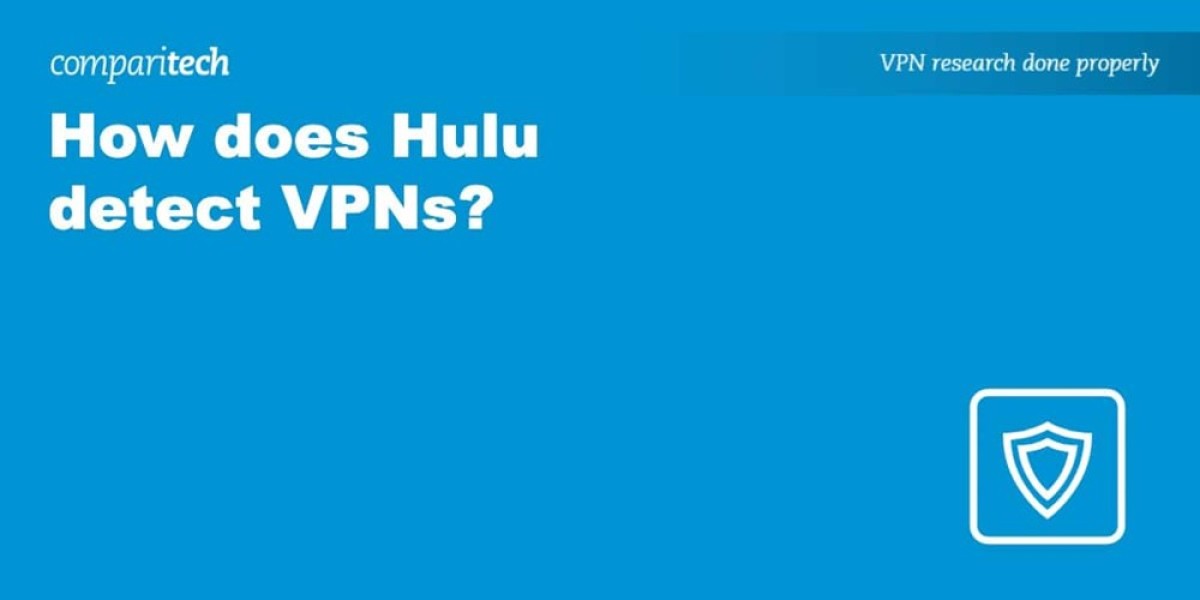Hulu's VPN Detection Methods
Using a dependable VPN can help you access Hulu while you’re outside the United States.
This is particularly useful for those vacationing, traveling for work, studying in another country, or expats living abroad.
However, there’s a significant challenge: many VPNs are blocked by Hulu.
So, what methods does Hulu use to identify these VPNs, and why do so many get restricted?
Hulu recognizes the global demand for its content.
Due to licensing obligations, the platform actively works to prevent unauthorized access from outside the US.
When Hulu spots an IP address belonging to a VPN, it promptly blocks it, ensuring that users cannot utilize that server for streaming live US television or Hulu’s on-demand library.
To successfully watch Hulu from another country, selecting a VPN that hasn’t been blacklisted is essential.
This means you need a VPN that employs effective strategies to evade Hulu’s detection mechanisms.
Very few VPN providers can successfully navigate Hulu’s restrictions, so it's important to choose one that has demonstrated reliability in this area.
If you already have a VPN subscription but are encountering issues with Hulu, consult our troubleshooting guide to resolve it.
In this guide, we’ll detail how Hulu identifies VPNs to give you a clearer understanding of the situation.
When Hulu detects a VPN, it blocks that particular service to prevent access.
If you see an error message while attempting to stream Hulu with your VPN, it likely means the server you’re using has been blacklisted by Hulu.
The error message you might see could read:
“error 16. your account is not valid in this region.”
This indicates that either you are outside the US or using a VPN server or proxy that has been restricted.
In such cases, trying a different server or switching to another VPN may be necessary.
If you encounter this error, it’s wise to reach out to your VPN provider to check if there are specific US servers optimized for Hulu.
Many VPNs offer numerous servers across multiple cities in the US, but not all of them are effective for accessing Hulu's content.To enhance your streaming experience on platforms such as Hulu, Netflix, ESPN, Peacock, and HBO Max, reaching out to your VPN provider’s customer support can be beneficial. Their agents can guide you towards optimal servers designed for seamless streaming.
In recent times, streaming platforms have ramped up their efforts to thwart VPN usage, aiming to restrict access to their content based on geographical location. Hulu and Netflix are particularly proactive in this area, implementing measures that effectively block access when they detect users attempting to mask their location.
Hulu employs sophisticated techniques to pinpoint and obstruct VPN traffic. While these strategies are becoming more refined, they aren’t infallible.
Some VPN services have managed to keep the door open for Hulu access by constantly evolving their methods to circumvent these detection systems. This adaptability enables users to enjoy Hulu even when abroad or in environments with restrictive internet access, such as workplaces.
However, the exact strategies Hulu uses to identify VPN connections remain undisclosed, which bolsters its effectiveness in curbing VPN access and complicates efforts by VPNs to restore connectivity.
Though Hulu keeps its VPN detection methods under wraps, a general understanding of the approaches used by various streaming services can be gleaned. Here are some notable techniques utilized by Hulu to identify and restrict VPNs:
A number of companies specialize in gathering and distributing lists of IP addresses associated with proxy services, smart DNS, and VPNs. They compile comprehensive databases of these IP addresses and offer them to streaming platforms like Hulu. This provides services with a robust foundation for blocking VPNs, frequently resulting in sweeping bans across all servers belonging to a single VPN provider.
Moreover, Hulu has developed automated systems to monitor the IP addresses used by its subscribers. If multiple accounts are detected streaming from the same or closely related IP addresses, the system may flag these as potential VPN servers.
Following this, Hulu investigates these flagged IPs to confirm whether they are indeed VPNs and subsequently adds any verified addresses to its blacklist. Once an IP is blacklisted, it can no longer be utilized to access Hulu’s content.Hulu employs sophisticated methods to identify and block VPN usage among its users.
When a user logs into Hulu using various IP addresses within a single day, it raises red flags for the platform’s automated detection systems.
If a user connects from multiple countries in a short span or exhibits unusual access patterns, Hulu can pinpoint and block IP addresses linked to VPNs.
Hulu diligently tracks the IPs used by its subscribers, and any suspicious activity can lead to the flagging and subsequent blacklisting of suspected VPN IPs.
This creates a constant challenge for leading VPN providers, as they engage in a back-and-forth with streaming services like Hulu. When VPNs manage to access Hulu, they may abruptly lose that access, prompting them to update their infrastructure and find new solutions to bypass Hulu's detection measures.
Streaming platforms have developed intricate technologies to identify VPN use, focusing on monitoring traffic patterns, packet structures, and various signs that indicate a user might be masking their location.
VPN detection systems scrutinize network traffic for signs of VPN activity, such as latency spikes or irregular response times. These anomalies are critical in triggering Hulu’s detection mechanisms.
This comprehensive analysis empowers Hulu to recognize VPN users, even those utilizing lesser-known services or unlisted IP addresses, thus enforcing regional content restrictions and issuing location errors to VPN users.
To effectively block VPNs, Hulu continuously monitors its users' locations through a combination of techniques, including GPS data, IP tracking, DNS query analysis, and browser cookies.
The platform’s automated systems utilize this array of location data, comparing the registered location of an account with the geolocation of the user's IP during login and streaming. If there’s a notable discrepancy between the two, Hulu flags the IP as a potential VPN.
Following up on these discrepancies, Hulu conducts further analyses to eliminate false positives. Ultimately, any newly identified VPN IP addresses are added to a blacklist, denying access to users attempting to log in through those VPNs.
Hulu VPN Detection Strategies
Hulu employs various methods to identify and block VPN usage, primarily focusing on detecting DNS and WebRTC leaks.
A reliable VPN should maintain a consistent IP address and DNS without any leaks, but not all services are effective in this regard.
Streaming platforms like Hulu monitor connections in real-time, looking for any brief leaks. If Hulu detects a change in DNS or IP address, even for a split second due to these leaks, it confirms VPN usage and may add that IP to its blacklist.
Understanding the mechanics of how Hulu recognizes these leaks can guide users in selecting a more dependable VPN that minimizes the risk of detection. VPNs that experience leaks can be easily identified and are often already blocked by Hulu, making it crucial to choose a leak-proof option.
In addition to DNS leaks, discrepancies between IP and DNS addresses can also trigger Hulu's detection systems. If these two do not align, Hulu can deduce that a VPN is in use, leading to potential blacklisting of the associated server.
Unfortunately, there’s little users can do to avoid detection by Hulu; the responsibility to bypass these blocks largely falls on the VPN provider. Nonetheless, some VPNs may offer specific server locations designed to circumvent Hulu’s restrictions. It's advisable to reach out to your VPN's customer support to find out which server is best suited for streaming.
Customer support should guide you to the optimal server, but if your current VPN provider is unwilling to disclose this information, you might need to experiment with various servers to identify one that works for streaming.
If your VPN does not provide specific guidance on which US server is effective for Hulu, it may indicate that it is blocked. Many VPNs do not openly admit to being blocked by major streaming services like Hulu or Netflix for fear of losing subscribers.
While the onus is primarily on the VPN provider to ensure effective streaming, there are steps you can take to enhance your VPN's performance.
If you’re using one of the recommended VPNs for Hulu, consider our troubleshooting tips: try closing your VPN application and restarting your streaming device to improve connectivity.To successfully access Hulu while using a VPN, follow these essential steps:
- Open your VPN application and verify that it is the latest version.
- Browse through the server list for a US-based server specifically marked for “streaming.”
- Some VPN providers highlight servers optimized for services like Hulu or Netflix, so check for those.
- If necessary, reach out to your VPN's customer support for recommendations on the best server for Hulu.
- Experiment with different VPN protocols, such as WireGuard or OpenVPN, to see if that improves your connection.
- Clear your browser's cookies and cache to eliminate any trackers that might interfere with the VPN's functionality.
For additional help, we offer specific troubleshooting guides tailored for Hulu compatibility with various VPNs:
- NordVPN Hulu troubleshooting guide
- Surfshark Hulu troubleshooting guide
- ExpressVPN Hulu troubleshooting guide
- CyberGhost VPN Hulu troubleshooting guide
- PrivateVPN Hulu troubleshooting guide
- PureVPN Hulu troubleshooting guide
- IPVanish Hulu troubleshooting guide
It's important to note that Hulu employs robust VPN detection methods aimed at blocking most VPN services, particularly free ones. Free VPNs typically have limited server options, making them easy targets for streaming services like Hulu to identify and block. Consequently, there are currently no free VPNs known to reliably access Hulu from outside the US or on restricted networks. A subscription to a premium VPN is necessary for uninterrupted access to Hulu while traveling.
Many common VPNs have already been restricted by Hulu, leading to error messages indicating proxy issues, preventing you from logging in or streaming content.
For a seamless Hulu experience with a VPN, choose one that has been proven effective in bypassing Hulu's restrictions. Our guide highlights the top VPNs for accessing Hulu, ensuring you can enjoy your favorite shows while maintaining your privacy, whether at work or on campus.
Best VPNs for Hulu
After extensive research, we've identified several VPNs that successfully bypass Hulu's detection mechanisms. For a deeper dive, feel free to explore our comprehensive guide on the top VPNs for Hulu.
If you're eager to start streaming right away, here's a quick list of VPNs that work seamlessly with Hulu:
NordVPN : This is the top choice for Hulu users. With lightning-fast speeds, robust security features, and a 30-day money-back guarantee, it allows you to test its effectiveness risk-free.
Surfshark : An affordable option perfect for streaming, it supports unlimited devices and offers multihop servers for added security.
IPVanish : Renowned for its fast and dependable service, it enables streaming of Hulu from abroad, while allowing unlimited connections and providing round-the-clock customer support.
ExpressVPN : Capable of unblocking Hulu from any location, it offers impressive streaming speeds and strong security. Their customer support is available 24/7 and is highly efficient.
CyberGhost : Tailored for beginners, it features streaming-optimized servers for Hulu within the app, supports up to seven connections at once, and includes a 45-day money-back guarantee.
Private Internet Access : A US-based VPN with secure applications that can access Hulu and Netflix. It boasts servers in over 80 countries and supports up to ten simultaneous connections.
PrivateVPN : This emerging VPN is effective with Hulu and other streaming services, featuring user-friendly apps and a strict no-logs policy.
PureVPN : An economical choice for Hulu, it offers fast speeds and a vast network of servers worldwide.
ProtonVPN : Best suited for advanced users, it provides strong privacy and security features while effectively bypassing Hulu's VPN detection.
NordVPN is currently offering a fully functional, risk-free 30-day trial. By signing up through our link, you gain access to the number one VPN for Hulu without any limitations for a month—ideal for testing if it meets your needs.
There are no hidden fees—simply reach out to customer support within the 30-day period if you feel NordVPN isn't a good fit, and you'll receive a complete refund. Start your NordVPN trial today!Hulu operates under strict licensing agreements that restrict its availability to the United States.
This means that the platform only has the rights to stream content within the US, requiring it to check the IP addresses of all users. If Hulu detects that a user is accessing the service from outside the US territory, it responds by displaying an error message.
This can be frustrating for genuine US subscribers who may be traveling abroad for leisure or business. For instance, if you're in Europe and wish to access your Hulu account, it's essential to use a trustworthy VPN that can provide you with a valid US IP address.
Certainly! By utilizing a well-reviewed VPN service, you can successfully connect to Hulu from Canada.
These recommended VPNs effectively assign a US IP address, allowing you to enjoy Hulu's offerings even if you're temporarily outside the US borders.
What is a Netflix VPN and How to Get One
A Netflix VPN is a virtual private network designed to enable users to access region-restricted content on Netflix by connecting to servers in different countries. By using a Netflix VPN, viewers can bypass geographical limitations and enjoy a wider variety of shows and movies available in other regions. To utilize a Netflix VPN, it's essential to select a trustworthy VPN provider that supports streaming, set up an account, download the application, and connect to a server in the desired location before logging into Netflix.
Why Choose SafeShell as Your Netflix VPN?
If people want to access region-restricted content by using a Netflix VPN, they may want to consider the SafeShell VPN . One of the main advantages of the SafeShell VPN is its high-speed servers specifically optimized for seamless Netflix streaming. These servers are designed with cutting-edge technology to provide lightning-fast connection speeds, ensuring buffer-free playback and high-definition streaming. Additionally, SafeShell VPN allows users to connect multiple devices at once, supporting up to five devices simultaneously across a wide array of operating systems, including Windows, macOS, iOS, Android, and more.
Another significant benefit of the SafeShell VPN is its Exclusive App Mode feature, which enables users to unlock and enjoy content from multiple regions simultaneously. This feature allows for a diverse range of streaming services and libraries, offering a world of entertainment without restrictions. Furthermore, users can enjoy lightning-fast speeds, eliminating issues like buffering and throttling that often plague users when their Netflix VPN is not working. With top-level security provided by the proprietary ShellGuard VPN protocol, SafeShell VPN ensures online privacy and data protection, allowing users to surf the web with confidence.
A Step-by-Step Guide to Watch Netflix with SafeShell VPN
To begin using SafeShell Netflix VPN , start by subscribing to SafeShell VPN through their official website. Choose a plan that aligns with your requirements and budget, then click the "Subscribe Now" button to proceed. Next, download and install the SafeShell VPN app suitable for your device, whether it's Windows, macOS, iOS, or Android. Once you've installed the app, open it and log in to your account. SafeShell offers two modes, but to optimize your Netflix viewing experience, it is recommended to select the APP mode.
After setting up the app, the next step is to choose your VPN server. Browse through the available server list and pick a server located in the region whose Netflix library you want to access, such as the US, UK, or Canada. Click "Connect" to link to your chosen server. With the VPN connection established, open the Netflix app or visit their website. Log in to your Netflix account and begin enjoying the content available in the region you selected, thanks to SafeShell Netflix VPN.







